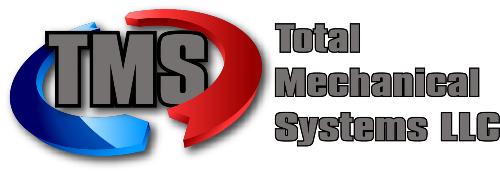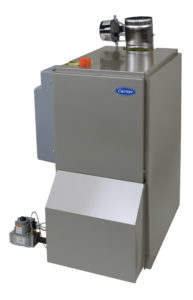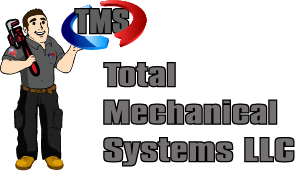Oil Boiler and Furnace tune-up benefits & tips
Oil remains the most common way to heat homes throughout the state even as natural gas continues to gain in popularity. Oil and other liquefied gases heat 48.5 percent of the households in Connecticut, according to the U.S. Energy Information Administration. Just over 15 percent of homes opt for electricity, while the remaining homes are heated by coal, wood or other sources.. What if you could reduce your energy consumption and save on your heating bills this year? It’s possible when your heating oil furnace or boiler is at peak efficiency, which requires periodic preventative maintenance by a trained technician.
Benefits of a furnace or boiler tune-up
Every home heating system accumulates dust, dirt, and other particulates that effect performance and efficiency. This can cause your utility bills to soar. A professional heating oil furnace or boiler tune-up and cleaning eliminates the grime and ensures all components are in good working order so when it’s time to turn up the thermostat on the first chilly morning of fall, you have heat. The main benefits of a professional heating system tune-up are:
- Improved system efficiency, which means better heating performance and lower heating costs
- Reduced risk of heating system failure — you don’t want to be without heat when the temperature is sub-zero
- Minimized possibility of needing major repair; emergency service always costs more than preventative maintenance
When is the best time to schedule a furnace or boiler tune-up?
The best time to schedule a heating system tune-up is between the months of May, July and August. While this is the time of year when everyone typically enjoys the increasing warm temperatures and fun of summer, it’s also the perfect time to think about preventative heating system maintenance.
It’s tempting to put off scheduling this important appointment, especially as a lazy afternoon poolside or at the beach seems more fun. However, there are quite a few advantages of scheduling your heating system tune-up in the spring and summer months rather than the fall.
- Convenience and availability. During the fall, everyone is rushing to get their heating system inspected. It can be difficult to book your appointment for the time and date you need. During the spring and summer, there is more flexibility with appointment scheduling.
- Time for repairs. Scheduling a tune-up before fall allows additional time for the technician to perform a thorough inspection and make any necessary repairs before the temperatures turn chilly.
- Early warning. A heating oil equipment technician can determine if there are major issues with your system. It’s better to discover problems early and have time to shop for and have a new system installed before winter so your family isn’t left without heat on the chilliest day of the year. If you do need a new furnace or boiler, consider a high-efficiency model to help save on annual energy costs.
What does a professional heating system tune-up include?
A professional tune-up for your heating system includes multiple steps and actions that are best left to a trained technician. A trained technician performs tune-ups regularly, understands and practices safety protocols and has the knowledge and ability to recognize problems before they cause a system failure. These are some of the tasks that a professional should complete:
- Check, clean or change air filters
- Inspect thermostat operations
- Check blower components and operation
- Inspect operation of heat exchanger and burners
- Inspect all electric components
- Check heating cycles
- Inspect pilot operation
- Grease moving parts as needed
- Inspect flute draft operations
- Inspect and adjust gas pressure
- Inspect heat exchanger
- Test safety features
A comprehensive tune-up and inspection by a professional is essential for any age of heating system — older models as well as new. Keep all tune-up records as proof of the inspection and service. These records may be needed if you have to file a warranty claim.
Safety tip: Remember carbon monoxide (CO) is a colorless, odorless gas with the potential to poison humans and pets if it builds up indoors. Carbon monoxide can be deadly. Make sure you have a carbon monoxide or CO detector in your home near your bedroom. You should also consider installing additional detectors if you have a multi-level home. CO detectors should be tested monthly.
Heating system tips for the homeowner
There are simple things you can do to help maintain your heating system in between annual tune-ups and inspections. If your home is heated with a warm air furnace, one of the easiest things a homeowner can do to help maintain equipment efficiency is to regularly change or clean the unit’s air filter. If using a disposable type of fiberglass air filter, the International Association of Certified Home Inspectors (InterNACHI) suggests replacing the filter every three months. It may need more frequent replacement if:
- The heating system runs six months or longer
- There are pets in the home, a large family or anyone suffering from allergies or respiratory conditions
- Smoking is allowed in the home
- Your area suffers wildfires, as ash can make its way indoors and clog the filter
- The home has a fireplace or wood stove that’s used frequently
- The home is on a working farm or ranch where dust and dirt regularly are disturbed and can enter the home, causing air filter clogs. Same is true if there’s a lot of construction happening near your home.
Always change an air filter if it’s damaged or damp. A damp air filter can lead to mold growth. Any mold that grows on the filter can send spores through the system and into the air that you and your family breathes, which may trigger allergies and respiratory issues.
Keep combustibles and anything flammable away from the heating system. For safety, never store gas cans, weed whackers and other similar items next to the furnace or boiler. At least twice a year dust the outside of the heating system to help maintain its efficiency. (Do it when you change your clocks for Daylight Saving Time and smoke detector batteries.)
Don’t forget to turn the thermostat to heating mode when the temperatures begin to drop. The heat won’t turn on when you need it if the thermostat is still set above the average room temperature or still in air conditioning mode. Test the heating system in early September to ensure it turns on properly. This also allows for enough time to schedule a service call if something is wrong.
Preventative maintenance that includes an annual tune-up performed by a trained technician is key to keeping your heating oil equipment running efficiently and your overall energy costs low.
Make sure your current furnace or boiler is operating efficiently by scheduling a tune-up. Call 1.860.314-1518 today!









